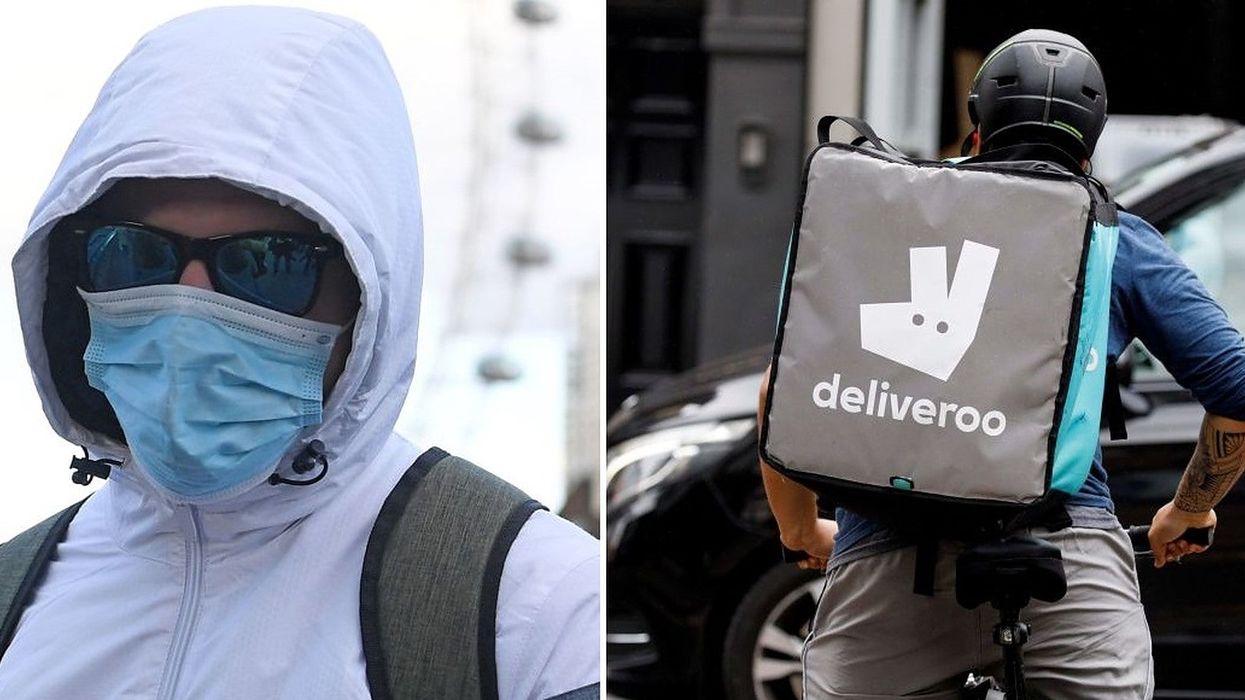News
Evie Breese
Mar 03, 2020

Image:
Getty
Are you one of the two million people who are too poor to self-isolate?
There are currently 51 confirmed cases of coronavirus in the UK, up from 39 confirmed yesterday, so there's inevitably been a lot of discussion about the best ways to stop the virus from spreading any further.
In a plan that was released this morning, Britons were warned that up to one in five people could be off work sick at the peak of a coronavirus epidemic. This could have a huge impact on workplaces, and entire industries, across the country.
People are starting to worry about the potential effect two weeks off work could have on their bank balance.
Self-isolation is important.
Something as simple as a trip to the shop by a person with the COVID-19 virus to pick up toilet paper could pass on the virus to elderly people and those with weakened immune systems.To properly self isolate, you should stay at home, ask delivery drivers to leave packages outside the front door, use separate towels to others in the house, and basically stay in your bedroom. And, whatever you do, DON'T go to work.
Some companies offer their employees sick-pay schemes, which is great for them. But what about everyone else?
Some employers don't offer anything more generous than the legal minimum statutory sick pay. This basic pay pack amounts to just £94.25 per week. And you don’t get anything for the first three days off, either.
With the period for self isolation set at 14 days, that could mean a budget of £188.50 to eat, pay bills, pay prescription fees, care for children or other dependents, entertain... And that's assuming that a person on statatuory sick pay doesn't have any dependants.
We’re predicting a lot of overdue rent and, in the worst cases, people might even struggle to feed themselves or buy basic necessities. Once again, poverty has more potential than any disease to kill.
But for some it could be even worse.
While Statutory Sick Pay (SSP) must be paid by employers to their sick employees, not everyone qualifies. Workers must have earned on average at least £118 per week (before tax) in the past 8 weeks before their sick leave to qualify.
With minimum wage for people aged 18 to 21 at just £6.15, a university student would have had to work on average 19 hours per week, for the last 8 weeks, to qualify.
A young mum in her early twenties earning minimum wage at £7.70, would have had to have worked 15 hours per week, and a cafe worker in their mid twenties or above waiting tables as a side hustle – 14 hours on average.
For those working in the gig economy, the situation is similarly bleak. In gig economy jobs, such as food delivery, pay is given per task.
So if you’re too sick to do the gigs, there won't be any pay for you.
Kimberly Hurd from Collective Benefits, an organisation working to extend benefits such as sick pay to self-employed people, told indy100:
Statistics on self-employment are sobering – with over 6M self-employed workers in the UK – 96 per cent without income protection and 93 per cent without critical injury or health cover and often with less than £500 in savings.
Gig and flexible working is here to stay and will account for more than 25 per cent of the workforce in the next five years. While it comes with a large amount of needed flexibility, it also leaves many vulnerable.
Issues like Coronavirus highlight this real and growing issue and a lack of protection. Often we see if a gig worker is out sick for a week or more and can’t work, this causes real financial difficulty for them and their families and the result is a reliance on the welfare state.
For millions of people, two weeks off work is simply not an option, meaning they will be forced to put themselves at risk of infection.
Trade Union Congress (TUC) highlighted this on Twitter in a post that has been shared 1500 times.
Frances O’Grady, General Secretary of the Trade Union Congress, told indy100:
The threat of coronavirus shows why sick pay should be a day one right for everybody. It’s not right that millions of UK workers miss out on this protection. The government must ensure everyone gets statutory sick pay regardless of how they earn.
Employers who aren’t paying sick pay from day one risk having staff coming in – especially if they don’t have symptoms.
The TUC are calling on people to sign a petition calling on the UK government to “guarantee sick pay for every worker from day one” which has so far gained over 11,000 signatures.
In this age of austerity and continuous cuts to public services, it’s the poor that suffer the most.
How unsurprising.
MORE: Boris Johnson labelled a 'danger to public safety' after admitting he intentionally exposed himself to coronavirus
Top 100
The Conversation (0)













